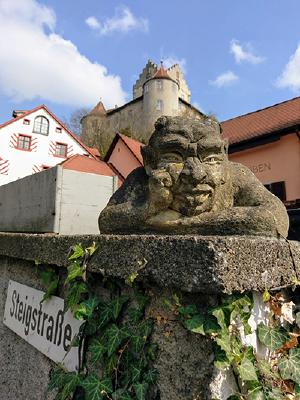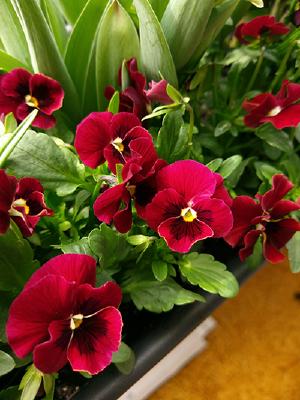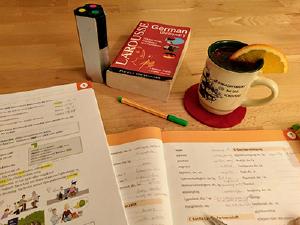Challenges with the German Language

Steigstraße
Living in Germany has its difficulties, particularly as a non-native speaker. In an ideal world I would be able to find everything I need to apply what I preach, but that can be challenging. The most obvious hurdle is language. I don’t know all the German terminology associated with gardening; it’s learn-as-you-go. This can be annoying since I don’t even possess the common knowledge of where to find certain products like I do in the States, not to mention not knowing the names of the products.
For example, where can one find speciality spring bulbs? In the US, I can instantly name a few familiar nurseries (Brent & Becky’s, Burpee, Spring Hill, Gurney’s, etc) and then rank them in speciality, quality, and expense to decide which nursery to order from.
Now, tell me, where I can buy spring bulbs in Germany?

Tiefmutterchen
Let’s walk through the process.
The literal translation for spring bulb is Fruehlingszwiebel but Zwiebel also means onion. Search ‘Fruehlingszwiebel’ brings up sites selling green onion bulbs.
Let’s use a specific spring bulb in order to refine the search: Tulip. What’s the German name? Head to a translation site, find “Tulpe”, search, and the first result is a company named Albrecht Hoch.de. It looks like a nice spring bulb site, with no mention of the word “spring bulb”.
Next result, Samen Mauser.ch, a Swiss site. I can’t easily order from there since it’s out of the country and uses a different currency, but it lists Blumenzwiebel. Of course! Flowering bulb! Why didn’t I think of that? Type in ‘Blumenzwiebel’, search, and finally multiple results.
Now, it’s time to sort through and rank which nurseries are best to order from. Start the next research process. Most of the time it’s fun to research and learn the German name of a plant. A favorite of mine is Stiefmuetterchen which translates ‘little step mother’ for pansies Viola tricolor hortensis and Fingerhut, ‘finger hat’ foxglove Digitalis purpurea.

It's a process
But it’s also a pain when I want to quickly look something up, or if I’m in a store trying to decipher a label. Not only do I need to learn the new word, I have to retain it, something that does not come easily to me.

A huge hurdle when learning German is memorizing words. I’m terrible! And yet, I love learning the language. I’m not entirely sure why: it’s not the prettiest to listen to, although I’d argue that it’s not as ugly as most make it out to be. Many examples Americans hear are in anger, which emphasizes the harshness of the language, but in everyday speech it’s pleasant. The grammar is difficult, to put it mildly. It’s frustrating when you don’t understand a rule but so satisfying once you finally do and can move on to the next frustrating one. It’s definitely a love-hate relationship.
The owner of the garden constantly has to repeat the German names of the plants in the garden. I’ve started to think that I should start labeling them with hanging tags in order to memorize everything. Can you imagine seeing large brightly colored tags with bold names hanging off of everything in a garden?
However, I am also attempting to memorize latin names too since it’s the international identification language. This might not be a bad idea. I think that this weekend I might just become that crazy American who labels everything.


